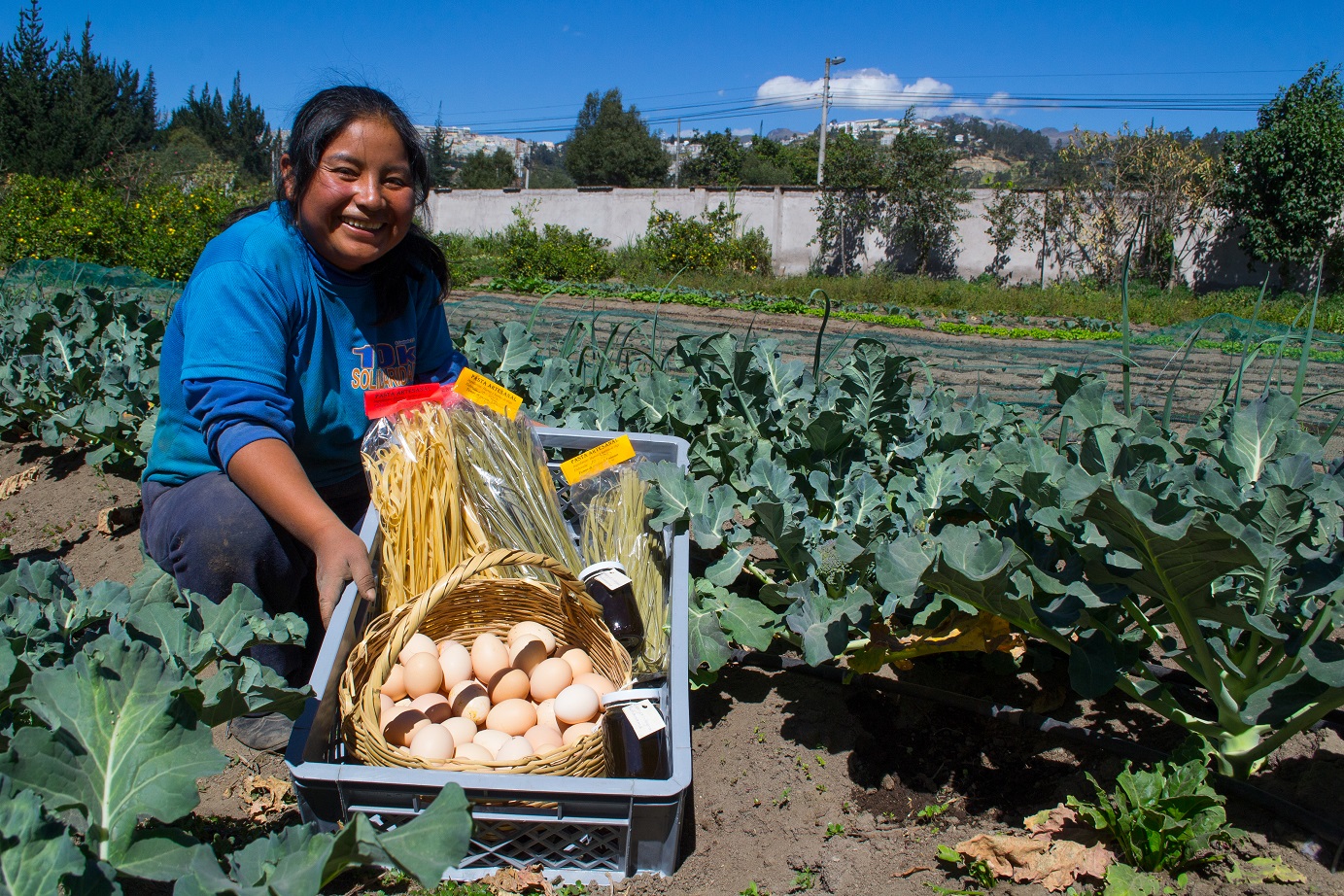

Food is sold in organic produce markets – the bioferias –located in low-income neighbourhoods and peri-urban zones, as well as in better-off parts of the city. As well, the District Trade Coordination Agency has begun to consider the large-scale commercialization of agro-ecological and organic foods through its markets and opened a first market of this kind, including for farmers supported by AGRUPAR. To help producers meet food quality and safety standards, AGRUPAR has introduced improved processing technologies and the use of containers, packaging and labels. AGRUPAR is registered as a producer and marketer of organic produce at the national level allowing it to share the cost of product certification with participating producers.
In addition to the bio-fairs, networks of farmers are also formed to deliver organic produce baskets directly to producers and to hotels or restaurants selling traditional food. AGRUPAR is registered as a producer and marketer of organic produce at the national level and shares the cost of product certification with producers.
- To ensure quality of production, the bio-fairs are only open to producers who have followed the Programme.
- In addition to the bio-fairs, networks of farmers have been formed to deliver organic produce directly to local food processing companies and to hotels and restaurants.
- To ensure the widest possible availability and consumption of organic food, bio fairs
are located in low-income neighbourhoods and peri-urban zones.
Today AGRUPAR’s participants annually produce more than 960,000 kg of food products. Almost half of the production (47 per cent) is used for home consumption, strengthening food security and diversifying the diets of the 12,000 participating urban farmers and their families, while the other half is marketed. The Programme created 17 bio-fairs where 105 types of food are offered. Through these, 25% of the produce is commercialized, for about USD 350,000 per year. Since 2007, a total of 6,663 bio-fairs have been organized and all produce is organic. Both formal organic certification for orchards with marketing possibilities (since 2007) and the internal control system (SIC, since 2013) are used. As of 2010, the Programme had created five associations of producers and therefore generated better opportunities for the commercialization of products.